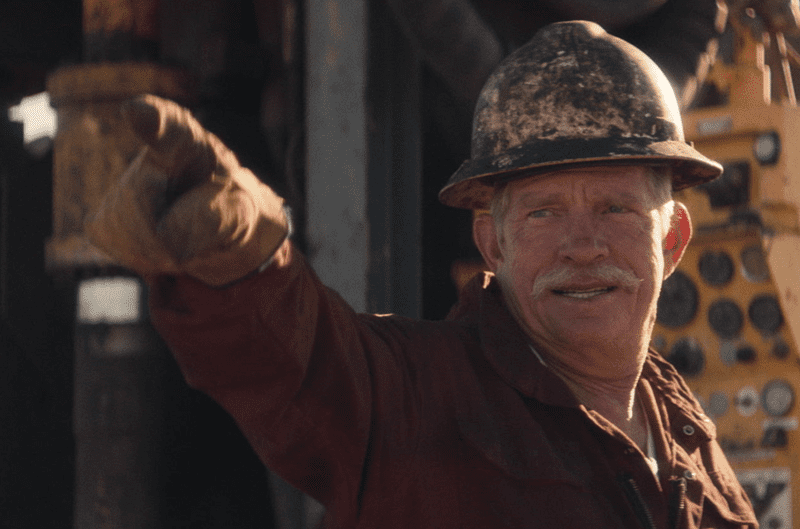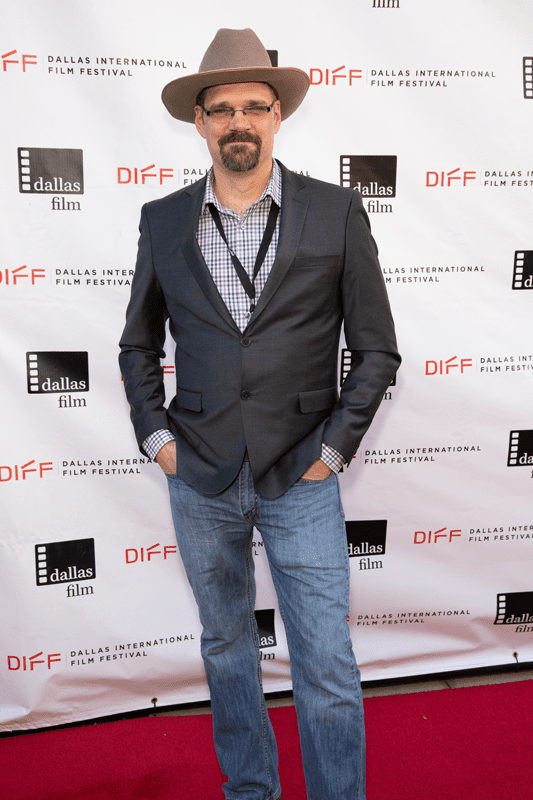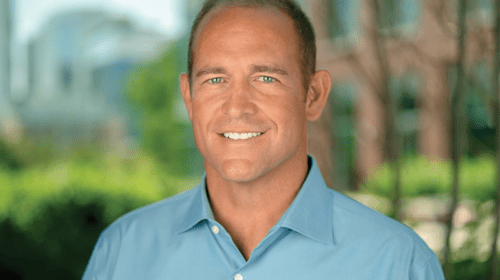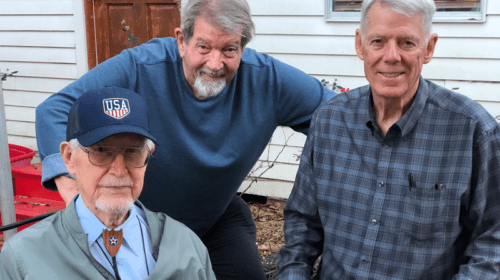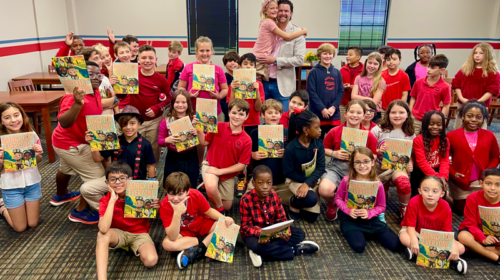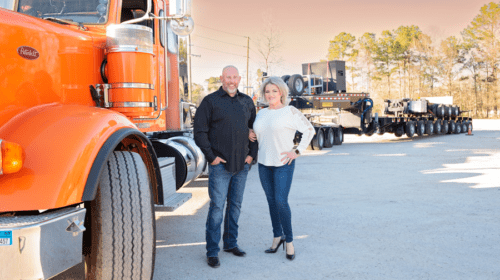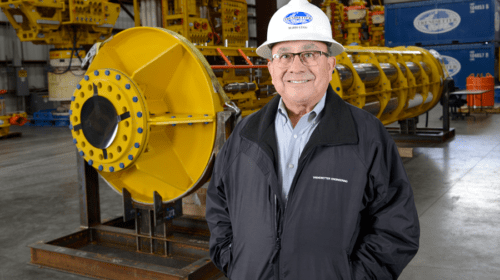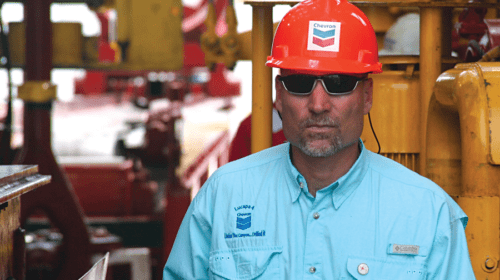When Abilene, Texas, author Cole Thompson wrote his debut novel, Chocolate Lizards (a reference to the dark brown lizard skinned boots his protagonist, Merle Luskey, a down on his luck oil and gas operator, eventually bestows upon his protégé, Erwin Vandeveer, a Harvard educated actor turned newly minted roughneck (landman in the movie version), he never could have envisioned that the film adaptation would hit the big screen on the 25th anniversary of the book’s publication. In a serendipitous turn of events, it coincides with the release of Thompson’s second literary endeavor, The Freudian Cowboy, described as a ballad-verse “memoir” by Texas bronc rider Hitch Givens. Warning: The book comes with a content warning due to Givens’ predilection for recounting his life experiences – “and often does so with rustic vulgarity.”
But, before there was Hitch Givens, there was Merle Luskey, who is being brought to life on the movie screen by Texas’ own (by way of California) Thomas Haden Church in the film adaptation titled Accidental Texan.
The filmmakers generously offered to let U.S. Energy Media Editor in Chief Rebecca Ponton; Copy Editor Shannon West, and independent photographer Marc Morrison spend a day on the set in November 2021 when the cast and crew were filming rig scenes in Bartlett, Texas, northeast of Austin. Producer Koen Wooten told Ponton, “The movie is a love letter to Texas and to the oil industry,” something movie goers will be able to experience for themselves when the film opens across the U.S. on March 8, 2024.
Featured Photo: Thomas Haden Church (Merle Luskey), “I signed on in July 2021, and by that time we only had three months until filming began. I immediately went down to a couple of different drill sites to visit some locals I knew and began to research the industry even more [than] what I remember growing up [and working in the oil field as a teenager]. We really strove for authenticity.” Photo courtesy of Roadside Attractions.
![Thomas Haden Church (Merle Luskey), “I was totally oblivious to the novel [Chocolate Lizards]; I had never heard of it. But the script came to me in the summer of 2021 and, as soon as I read it, I was interested.” Photo courtesy of Jalisco Wayne.](https://b1006343.smushcdn.com/1006343/wp-content/uploads/2024/03/Thomas_Haden_Church_in_Accidental_Texan_Photo_Credit_Jalisco_Wayne_10bb3049b1.png?lossy=2&strip=1&webp=1)
Thomas Haden Church (Merle Luskey), “I was totally oblivious to the novel [Chocolate Lizards]; I had never heard of it. But the script came to me in the summer of 2021 and, as soon as I read it, I was interested.” Photo courtesy of Jalisco Wayne.
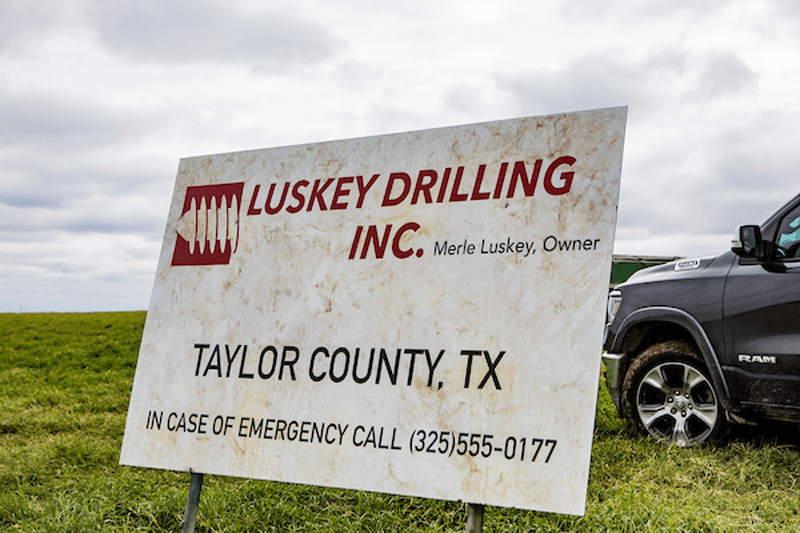
Luskey Drilling, Inc. sign posted at the Accidental Texan well site. Photo courtesy of Marc Morrison Photography.
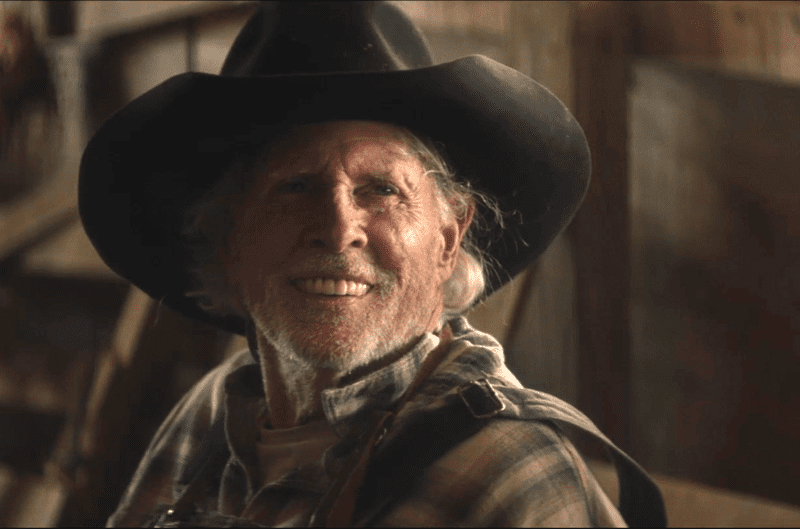
Bruce Dern as Scheermeyer
You’re known for being a straight shooter in real life. How much of Scheermeyer’s character was acting, and how much was you?
Ninety percent and the other 10 percent was what I picture it would be like if you had a bull for a best friend.
You have played ranchers and farmers in your career, but have you ever spent so much time with a cow before filming Accidental Texan?
I only had one other friend that was a cow and that was Elsie, the Borden milk cow. When I was a kid, my parents would take me out to Libertyville and we would go visit the real Elsie on the farm. She was very old, but we would go see her a couple times a year, usually around Thanksgiving. That cow had star power!
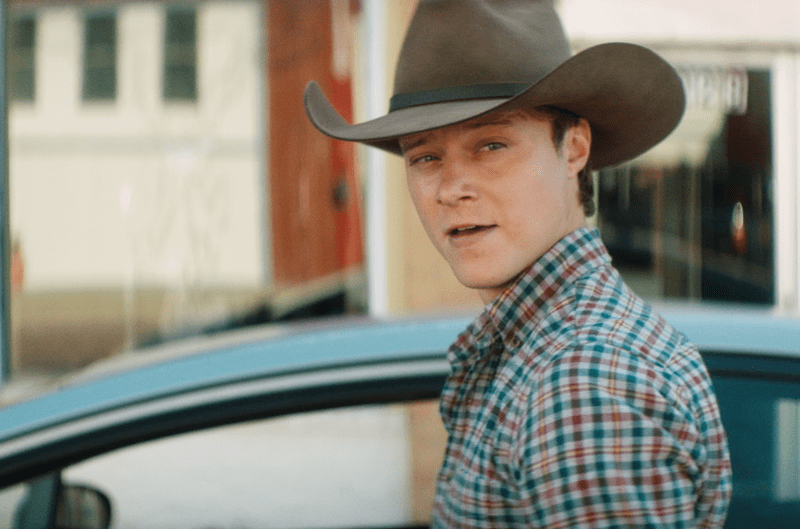
Rudy Pankow as Erwin Vandeveer
When the book Chocolate Lizards was released in 1999, a Texas Monthly magazine reviewer called Erwin a “Harvard-educated weenie”! How would you describe your character?
A “Harvard educated weenie?!” What a thoroughly poetic choice of words this Texan reporter had. And I honestly can’t disagree with their description. He starts off a little weenie like. But you shouldn’t blame Erwin for holding himself to an impossible standard and constantly searching for validation in pursuing what he wants and doing his best. He’s a dream chasing, hardworking, Harvard educated landman who loves to tell a story. So, in short, I’d describe him as a true Texan actor.
What did you learn from making this movie about the oil field and the people who work in it?
It’s truly not for those who miss home a lot. Insane hours, and things can change in a flash. That part of the film of always needing to be aware of what’s going on is the biggest thing I learned. Working on an oil rig usually isn’t romanticized for a reason and, after talking to some true roughnecks, I definitely see how it can be some of the most grueling work out there. That being said, there’s such a strong sense of community and watching out for one another, which you don’t get with many jobs.
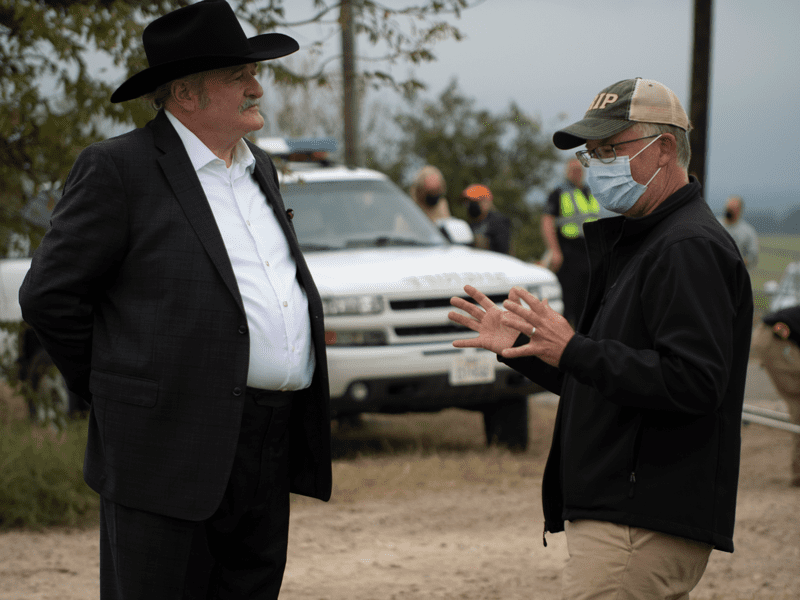
Brad Leland as Max Dugan
How does being a native Texan help you in roles like Buddy Garrity on Friday Night Lights and now Max Dugan?
To be a fifth generation Texan means that I know at least five or six different Texas accents. The North, South, East and West Texas accents are very different. They depend on climate, geography, cultural ancestry and financial situations. The accents are varied, and many actors mistake all Southern accents [as being] alike. It’s just as different as the five accents in the boroughs of New York, the California and the various Midwest regions. Every state has a distinct accent. Everyone in media used to use the standard American accent, not speak[ing] with regionalism.
Buddy Garrity is a beloved character. What was it like playing the villain?
Villains played by actors don’t think about themselves as villains. We think that all our actions are justified. [And] actors don’t think that they are villains; their actions are justified. Just as politicians don’t think of themselves as villains [who] are wrong in their varied actions!
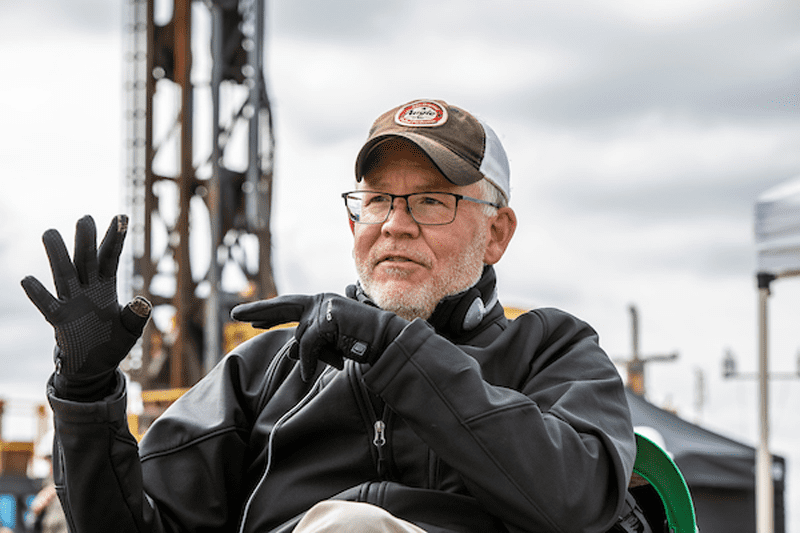
Director Mark Bristol
As the casting was locked down role by role, Director Mark Bristol would write a personal letter to each actor inviting them to join the production. And with each letter, he would add a hand-drawn illustration of the performer as their character in his distinct storyboard art style.
During a break in filming, Director Mark Bristol takes time to talk to Rebecca Ponton and Shannon West about the 25 year journey he and producers Koen Wooten and Julie Denny embarked upon in the quest to see Accidental Texan go from the page to the screen.
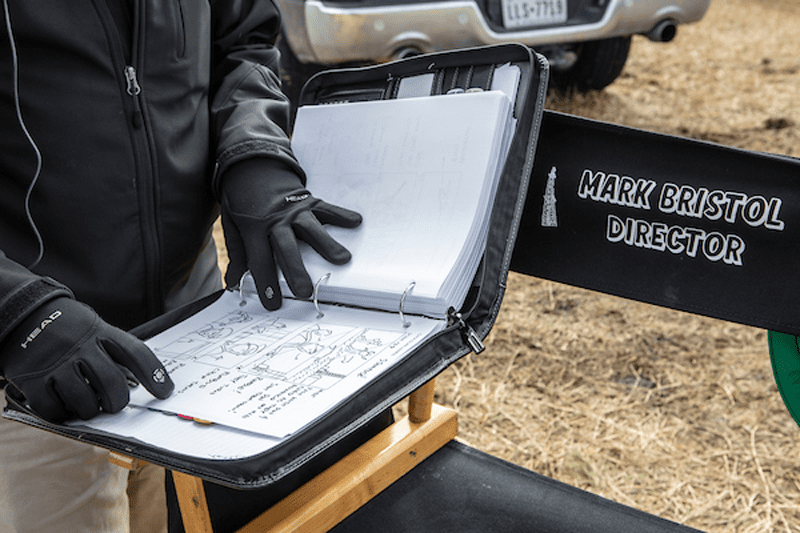
Producer Koen Wooten
“This movie is a love letter to Texas and to the oil industry.”
After 15 long years, Producer Julie B. Denny made the call to Mark Bristol and he excitedly jumped back onto the director’s chair. Naturally, Mark called Koen Wooten, now his “creative brother-in-arms,” and asked him to return to the Texas-set dramedy as well. And, just like that, the original trio reformed to work through the script for another year and a half until they felt the material was ready to see the light of day again.
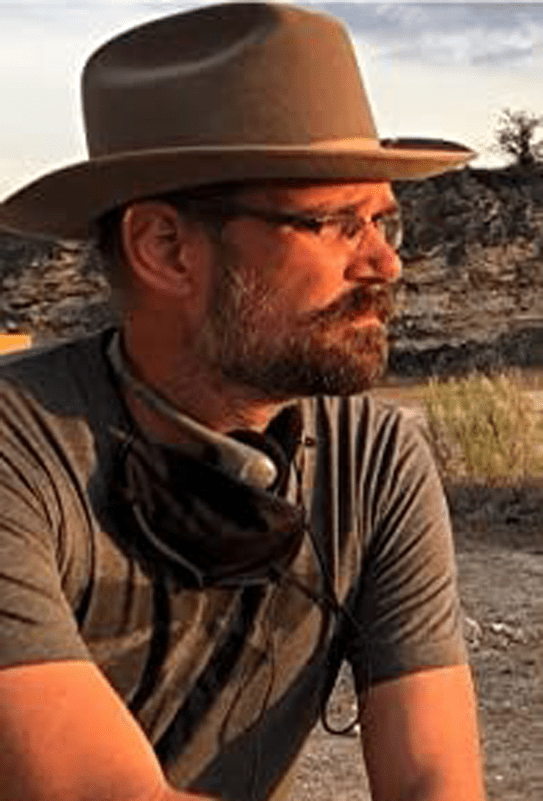
Rebecca Ponton has been a journalist for 25+ years and is also a petroleum landman. Her book, Breaking the GAS Ceiling: Women in the Offshore Oil and Gas Industry (Modern History Press), was released in May 2019. For more info, go to www.breakingthegasceiling.com.
Oil and gas operations are commonly found in remote locations far from company headquarters. Now, it's possible to monitor pump operations, collate and analyze seismic data, and track employees around the world from almost anywhere. Whether employees are in the office or in the field, the internet and related applications enable a greater multidirectional flow of information – and control – than ever before.

